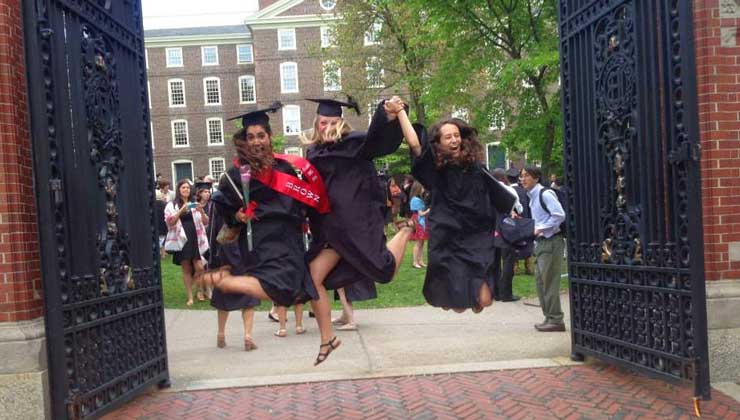After National Adjunct Walkout Day: The Struggle Continues, Together…
Thinking about the events of last week and NAWD/NAWW — National Adjunct Walkout Day and Week — I have become introspective.
So I began looking through my old writings, and I came across this piece I thought I had lost, from the fall of 2013, when my youngest daughter was beginning her last year of college. I remember feeling ambivalence yet excitement.
And as I read it now, the words tumble back and my feelings exude that sweet pain that yet tingles vibrantly, not letting go, because it is still very much present.
Will we ever let these emotions go? Will we ever stop worrying, stop musing over our children, our loved ones, our students, our peers?
Aren’t we supposed to keep on going in our struggle, daily?

© Ana M. Fores Tamayo
I am getting ready to leave for two weeks on the second half of my road trip: I went to California before, and now to the northeast—this has been my cross-country summer. We are moving our youngest daughter to a house this year, her senior year in college, and though on a personal level I am happy and sad and ecstatic and also feeling a wee bit old, I am waxing philosophical.
Why?
As faculty, we want the best for our students. We do the most we can; we give them those critical thinking skills they need to think about the future, to forge ahead and make waves into tomorrow, to look at the big picture, to conquer it all.
As a parent, though, I quiver.
I certainly am glad she is finishing undergrad now, before things in Higher Ed get any worse than they are now.
I know there’s still a ways to go. My middle daughter has begun a Ph.D. program in bio-archeology. In the opposite mode, my oldest son quit law school because he became disillusioned with corporate America and decided he needed no more formal education: for what, he says? I can study on my own.
So what will my baby do?
As parents, we help our children and struggle with them and try to tell them not to get tied up in knots with these tuition foibles, as we did: but how can we stop them if they have their minds set? For undergraduate school, my children were lucky enough (or will be, when my last graduates!) to be able to come out with $0 debt — because financial aid helped them; because they were smart and received scholarships; because mom & dad have exhausted their IRAs (that may be lucky for kids, but not so for parents).
BUT not all children are so fortunate.
Most kids today do not have that luxury, and most kids today end up with thousands of dollars to pay.
So when my daughter asks me about teaching, what can I tell her? What does my baby want to hear?
The truth, the reality, an illusion, a mixture of both?

© Ana M. Fores Tamayo
Does she want to hear that I love my students but I hate what the corporatized university is doing not only to students, but also to the rising contingent faculty numbers out of control? What that university is paying us, in real dollars and in respect, or lack thereof?
Does she long to hear my stories of the thrill I get from the dialogue in the classroom, when teacher and student connect, when students grasp higher themes and then apply them to life experiences? How can I tell her that this is not worthwhile?
But how can I then explain the humiliation I feel when I find out she is making more than me in her summer job as camp counselor?
I should be proud of her, no? And yet, shouldn’t educators be worth more?
So as I leave tomorrow on the road eastward, thinking of what I will say to my daughter beginning her last year of school —and thinking whether she really wants to teach— I guess I will tell her that I am in this struggle for her.
We are all in this struggle because tomorrow, we hope our youth have a better world to teach in.
We hope that all students, all society, can teach that bigger picture, can explain the things that matter, and they can do so — with pride — knowing they will not have to skulk off to another job, another college, another belittling and diminishing paycheck, or two, or three.
Bittersweet anticipation…

Because I worry, then, about both adjunct faculty and our children — present and future — I want to re-post my colleague Vanessa Vaile’s great report on public service loan forgiveness, first published in Precarious Faculty in 2009. The facts here are as fresh and relevant today, however, as they were when she first wrote about them. This is one of the most visited posts on her site. Moreover, in 2014, the “Consumer Financial Protection Bureau (CFPB)” revealed data that both federal and private student loan servicers were using illegal tactics to maximize their profits at the expense of borrowers.
And that, of course, to a great degree means us — adjunct faculty — who cannot afford much, as well as the many newly minted graduates like my daughter and her friends, who do not have a leg to stand on when it comes to paying the exorbitant loans many are zonked with, or who can land no jobs to speak of right after graduation.
So please look over the report to see if there is anything that can help you going forward on loan forgiveness: if you do public service, you may qualify (and teaching at a public university may make you eligible)! Also advise your students: like you, they will soon come to graduation, and they will encounter the myriad papers they will have to decipher to try to see what they can qualify for, if they cannot afford to pay back extensive student loans.
You see, students are our strongest allies. Together, we can support each other.
In the end, or during our journey as adjunct faculty trying to reclaim education for our students, we need to fight, to struggle daily. And as we teach day to day, we need to celebrate NAWD in these little rebellions in union with our students.
As both educators and students, we undergo enough of a struggle without student loans to cripple both future graduates and us!
Thus it is in these small acts of courage — in the research we do to try to save ourselves and our future, in the mutual support we give each other through NAWD and NAWW and all the everyday activities that adjunct faculty must do to support each other and our students — that we will change education.
With these small insurrections, no matter how small, we will reclaim our future.
We will make education better for all; we will give education back to that higher truth which ultimately belongs to the betterment of all society: omnia vincit veritas..

© Ana M. Fores Tamayo
Leave a Reply